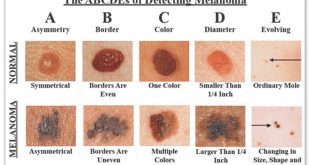Submitted by Hospice of Marion County
 Each November hospices around the U.S. recognize and celebrate National Hospice and Palliative Care Month. It’s a way to highlight the benefits of hospice care and help bring awareness to the special compassionate and comforting care that hospice organizations provide every day.
Each November hospices around the U.S. recognize and celebrate National Hospice and Palliative Care Month. It’s a way to highlight the benefits of hospice care and help bring awareness to the special compassionate and comforting care that hospice organizations provide every day.
Perspectives on death and dying may differ across various cultures, but simply having a conversation with your loved one about it can have a profound impact. While it may be difficult to ponder one’s own death or that of a loved one, it is exactly these courageous conversations we should be having to ensure loved one’s wishes are known before it’s too late. It could mean the difference between having the type of end-of-life care desired experience, matching their values and wishes, to one that doesn’t. Not knowing in advance can cause unnecessary stress for families.
When a family is coping with a serious illness and a cure is no longer possible, hospice care can provide the comfort and dignity wanted when nearing death. However, it’s an all too common situation: A family is at the bedside of a loved one who is near death, unable to speak for themselves. Each member of the family has a different idea of what should be done and what the patient would have wanted.
Having a conversation with loved ones about your advance directives is a gift that leaves no unanswered questions and provides peace of mind to everyone. As part of your planning, also make sure you have shared your advance directives with your physician and family. Make sure they know where these are in your home in case of an emergency (don’t keep them in a safe deposit box at your bank that only you can access).
We encourage everyone to have these conversations to start a meaningful dialogue. In fact, it’s recommended that everyone do this before a medical emergency. Just like you plan for your retirement, you should plan for your death by having advance directives completed. Preparing an advance directive identifies who your healthcare surrogate is and gives your loved ones a roadmap to what your wishes are at end of life.
Many think hospice care is only when someone has a few days or weeks left to live. However, Medicare beneficiaries are entitled to 180 days of hospice care. That’s six months of special comfort care only hospice professionals can provide, and Medicare provides 100% coverage of these services. When people don’t receive this benefit until the final days of life, they miss out on all that hospice can offer and may end up spending difficult days in the hospital or emergency room. Hospice providers can help with information about care options and choices to ensure you live as fully as possible. They will make sure you and your loved one receive emotional, spiritual and grief support as well.
Considered to be the model for high-quality, compassionate care for people with a life-limiting illness, hospice and supportive care is paid for by Medicare, Medicaid and most private insurance plans. Make sure you are getting your full hospice benefit. Learn more about hospice care and how Hospice of Marion County can help you or a loved one by calling (352) 873-7415 or visit HospiceofMarion.com
 Central Florida Health and Wellness Magazine Health and Wellness Articles of the Villages
Central Florida Health and Wellness Magazine Health and Wellness Articles of the Villages



